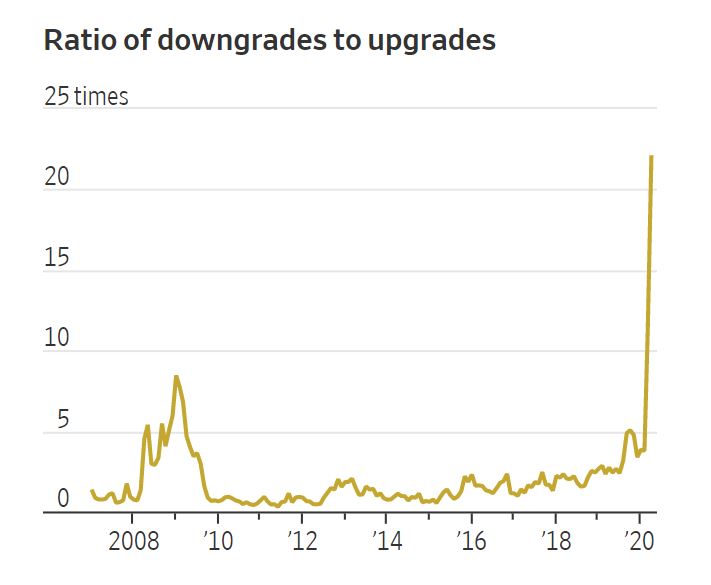Imagine if each time your wages were deposited in your bank account, your employer deducted a fee of 1.5% to 5% to provide the money electronically. That, increasingly, is what health insurers are imposing on doctors. propublica.org/article/the-hi…
Many insurers, after whittling down physicians’ reimbursements, now take an additional cut if the doctor prefers — as almost all do — to receive funds electronically rather than via a paper check. Here's a 🧵about how powerful industry lobbyist made it all possible.
Such fees have become routine in American healthcare. Almost 60% of medical practices said they were compelled to pay fees for electronic payment at least some of the time, according to a 2021 @MGMA survey. mgma.com/mgma-stats/mor…
Such fees are more than an annoyance. They add hours of administrative hassle and extra costs to medical clinics already burdened by insurers’ denials of coverage, pre-authorization requests and other obstacles to providing care.
Being forced to pay in order to get paid is the final blow for some doctors, who request paper checks instead of electronic payment in order to avoid the fees. 

That’s the opposite of what Congress hoped would happen when the Affordable Care Act instructed regulators to write standards for electronic payments in healthcare. The gov't projected using electronic billing rather than paper checks would save $3-$4.5 billion over 10 years.
Instead, insurers and their middlemen turned a cost-savings initiative into a lucrative niche industry. With more than $2 trillion in medical claims being paid electronically each year, these fees likely add up to billions that could otherwise be spent on healthcare.
Sometimes there are kickbacks involved. Payment vendors like to offer insurers a cut of fees they get when doctors accept a high-fee payment method known as a virtual credit card. It’s not a secret; it’s a sales pitch one @UnitedHealthGrp subsidiary put in a marketing brochure. 

UnitedHealth said in a statement that its services help medical clinics streamline recordkeeping, reduce administrative burdens and accelerate payments. documentcloud.org/documents/2390…
How this hidden fee came about has never been reported before. And it’s coming to light because one doctor, initially incensed by the fees, decided to try to figure out what was going on.
Dr. Alex Shteynshlyuger, a New York City urologist, was constantly being told he had no choice but to pay fees if he wanted to have his medical claims paid via electronic funds transfers. 

Perplexed, @DrAlexUrology began filing voluminous public records requests with @CMSGov. The records he obtained provide a rare window on how special interests influence health policy to benefit their bottom lines. 

The records showed, again and again, @CMSGov officials deferring not only to a single company, but to a single executive who convinced the agency that doctors can be forced to pay fees on money that health insurers owe them.
In Aug. 2017, after hearing complaints from doctors, @CMSGov posted a notice on its website informing insurers that they weren’t allowed to charge physicians a fee for being paid electronically.
A private equity-backed payment processor, @ZelisHealthcare, immediately complained and demanded that @CMSGov take down and revise the notice. Within three days, CMS complied. documentcloud.org/documents/2390…


The request was coming from a familiar face. Matthew Albright, Zelis’s VP of legislative affairs, was a former CMS staffer who wrote the rule implementing electronic payment standards for healthcare. In a classic Washington twist, he now worked for the industry he once regulated. 

In late Sept. 2017, CMS posted a revised version of the notice on fees. But contrary to Albright’s wishes, CMS stood firm on the key point: The new document stated that insurers and payment processors “should not charge providers communications fees” for electronic payment. 

Shortly after the revised notice went up, Albright emailed the director of the CMS division that issued it. Albright suggested that Zelis was preparing to escalate its complaints but offered to “work through this without causing too much noise.” documentcloud.org/documents/2390…


A few weeks later, Albright had a call with another CMS official and demanded that the agency revise its notice on fees yet again, according to an email summarizing the call. documentcloud.org/documents/2390…


In Jan. 2018, Zelis brought in the lawyers. A law firm hired by Zelis told CMS to “withdraw or correct the offending language” in its fee notice or face a lawsuit if it didn’t meet the company’s demands. documentcloud.org/documents/2390…


The legal threat set off a scramble within CMS. Officials not only removed the notice saying that fees were prohibited but also placed a moratorium on new notices. CMS was essentially depriving all medical providers of guidance on these issues because one company had complained.
Zelis didn't answer detailed questions about Albright’s interactions with CMS or make him available to discuss that topic.
Zelis said in a statement that its services remove “many of the obstacles that keep providers from efficiently initiating, receiving, and benefitting from electronic payments.” documentcloud.org/documents/2390…
CMS said in a statement that it reversed its position because it concluded that it had no legal authority to "flat-out prohibit fees." documentcloud.org/documents/2390…
As for Zelis’ lobbying, CMS said it "receives feedback from a wide range of stakeholders" which helps it understand where to clarify its policies.
CMS’ latest guidance on fees for electronic payments reflects this view. When the agency finally published a new notice in July 2022 that addressed the fees, CMS made explicit what had previously been implicit: fees for electronic payments are allowed. cms.gov/files/document…
Moreover, payment processors like Zelis are now off-limits for CMS. The agency says it views them as “business associates” who sit outside of its direct oversight. The legal interpretation benefits the companies because it renders many doctors’ complaints essentially moot.
Don’t forget: @propublica has been spotlighting injustices in the U.S. health care system. Do you know of one? If so, get in touch and let us know
propublica.org/getinvolved/in…
propublica.org/getinvolved/in…
• • •
Missing some Tweet in this thread? You can try to
force a refresh

 Read on Twitter
Read on Twitter






